Urbanism / Global
3. Mixing the old with the new
Being smart is intrinsically intertwined with also being sustainable. MDD blended traditional Qatari heritage and aesthetics with modern technology to create an architecture that is sustainable in a social, cultural, environmental and economic sense. This is a far cry from some western-style developments in the region where glass high rises give the impression of a version of “modernity” that is better suited to a different culture and climate.
The objectives
Hitting the target
When the developers first set out the masterplan for Msheireb Downtown Doha, they created a series of sustainable-design objectives. First, they pledged to create a robust urban framework, observing traditional architectural values within a modern design. In doing so, they would maximise the use of microclimatic effects to enhance thermal comfort. Car use would be reduced, while improving connectivity across the wider city area. Water efficiency should be increased and water consumption sitewide was reduced in conjunction with an efficient waste-management system. In addition, the developers hoped to deliver high-quality areas in the public realm. These should facilitate community interaction and social exchange, while recognising a broad spectrum of nationalities. Without fail, Msheireb Properties delivered on all its promises with some groundbreaking sustainability initiatives.
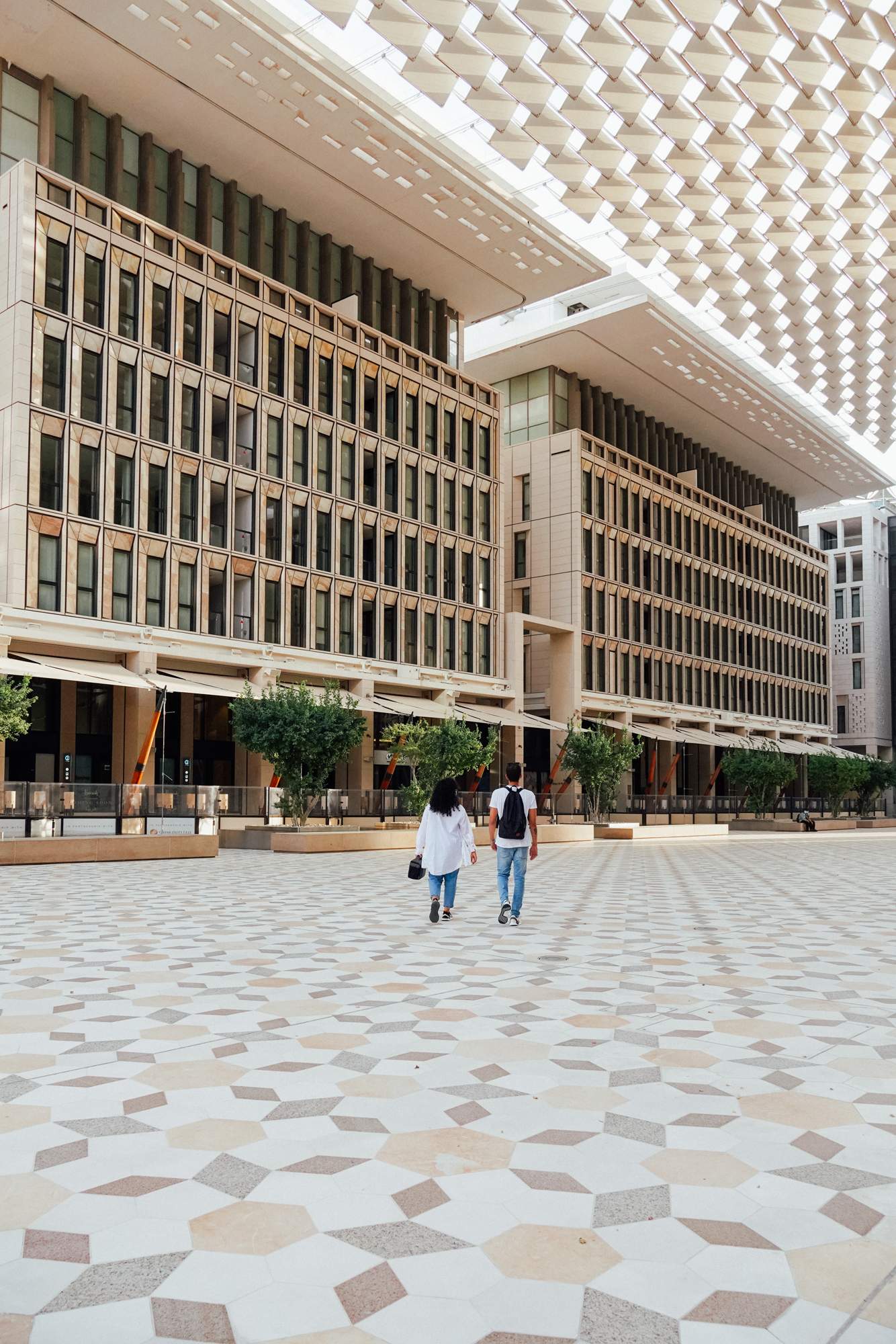
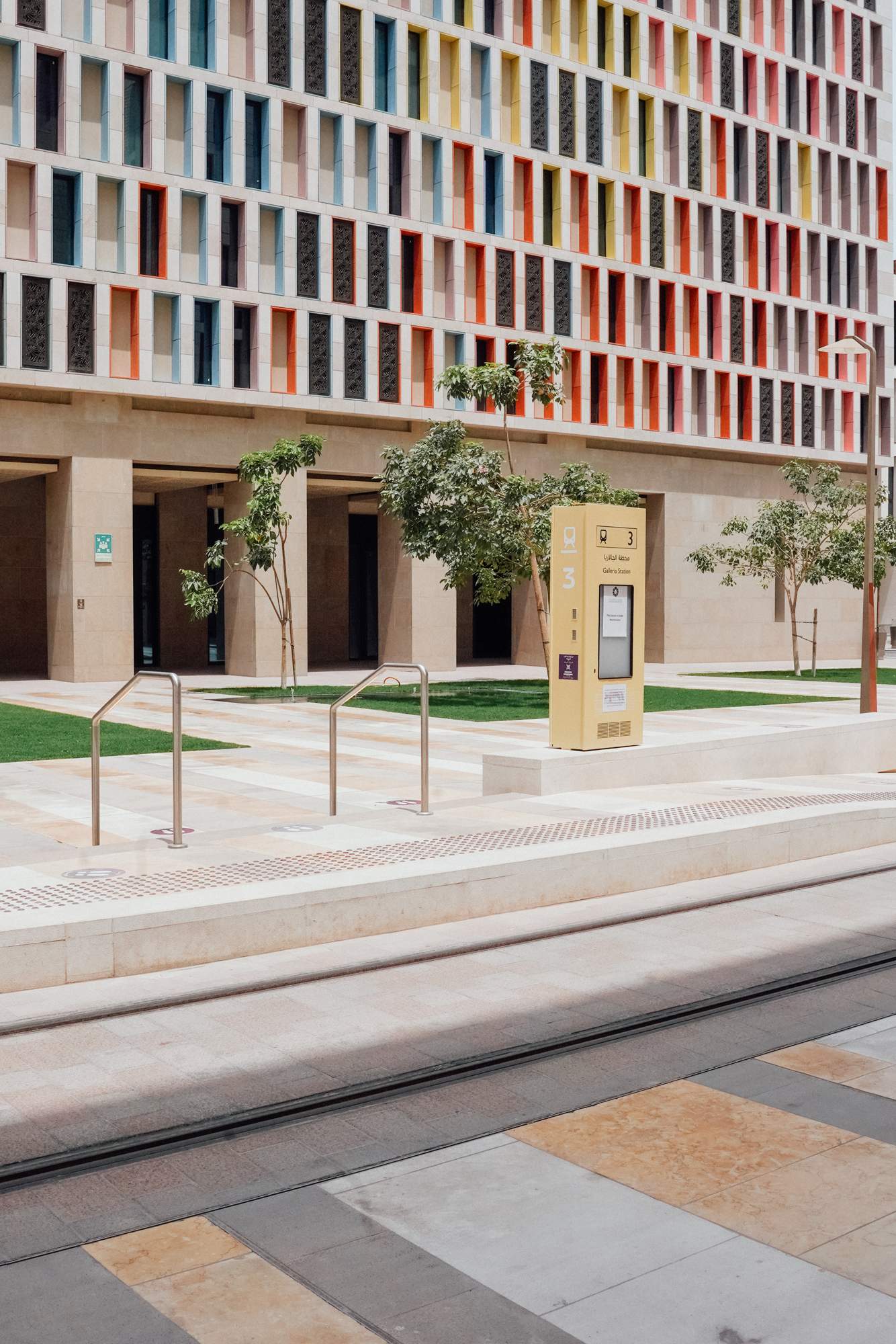
One of the district’s most forward-thinking and friendliest schemes is its public transport. Unusual in the region, mdd’s mobility programme was focused not on cars but on the golden triumvirate of walking, cycling and trams. For pedestrians and cyclists, intersections with signals, pedestrian-only streets and bicycle-friendly byways were augmented with shower and locker facilities to freshen up after the exercise. The three trams of mdd are self-powered vehicles requiring no overhead wires or wayside power systems of any kind. Their power is provided by onboard batteries, charged electrically when not in use. The trams are fully air-conditioned and incorporate special light-filtering glass panels which inhibit over 90 per cent of the heat from sunlight. These trams are also convertible and can be operated as open-air cars during the cooler winter months by removing the large glass panels, a feature unique to mdd.
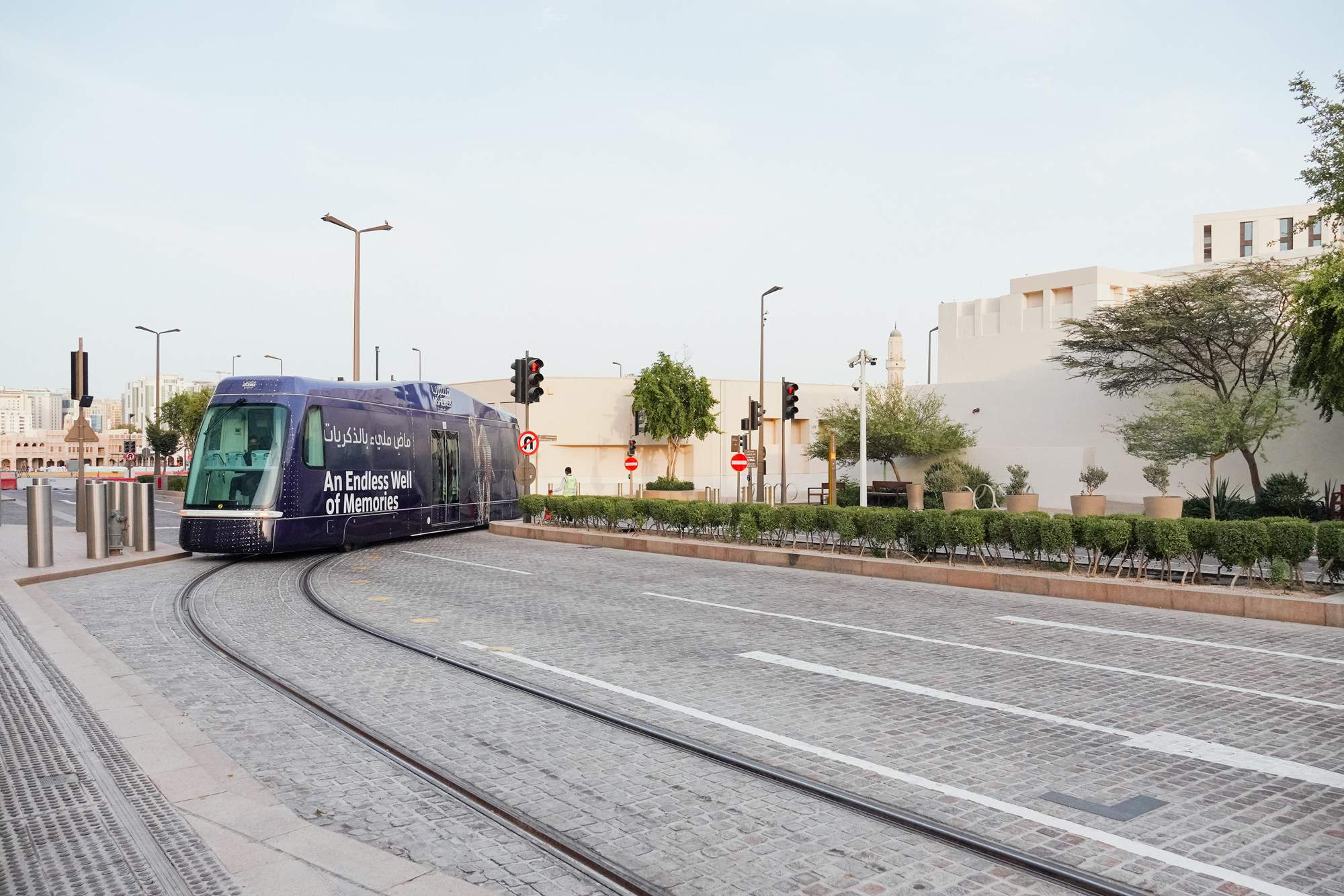
The water
Going with the flow
Water is a precious resource in the desert. Sanitary water is treated through sewage works and is then recycled for irrigation right across Qatar. As part of its waste and utilities-management system, Msheireb Downtown Doha takes the concept of water treatment several steps further. The water is put through a two-stage reverse-osmosis process, whereby treated water is received from a high-tech plant and stored in customised, non-potable basement tanks that are kept separate from the main drinking-water supply. Storm water is also collected and then treated before being transferred to the same tanks. This process is replicated with the condensed water collected from the air-ventilation systems. These bespoke receptacles hold high-quality, non-drinking water that is not only suitable for irrigation but is also used for toilet-flushing and at the district cooling plant. By implementing these smart, sustainable solutions, Msheireb Downtown Doha is able to reduce the waste of drinking water by 75 per cent.
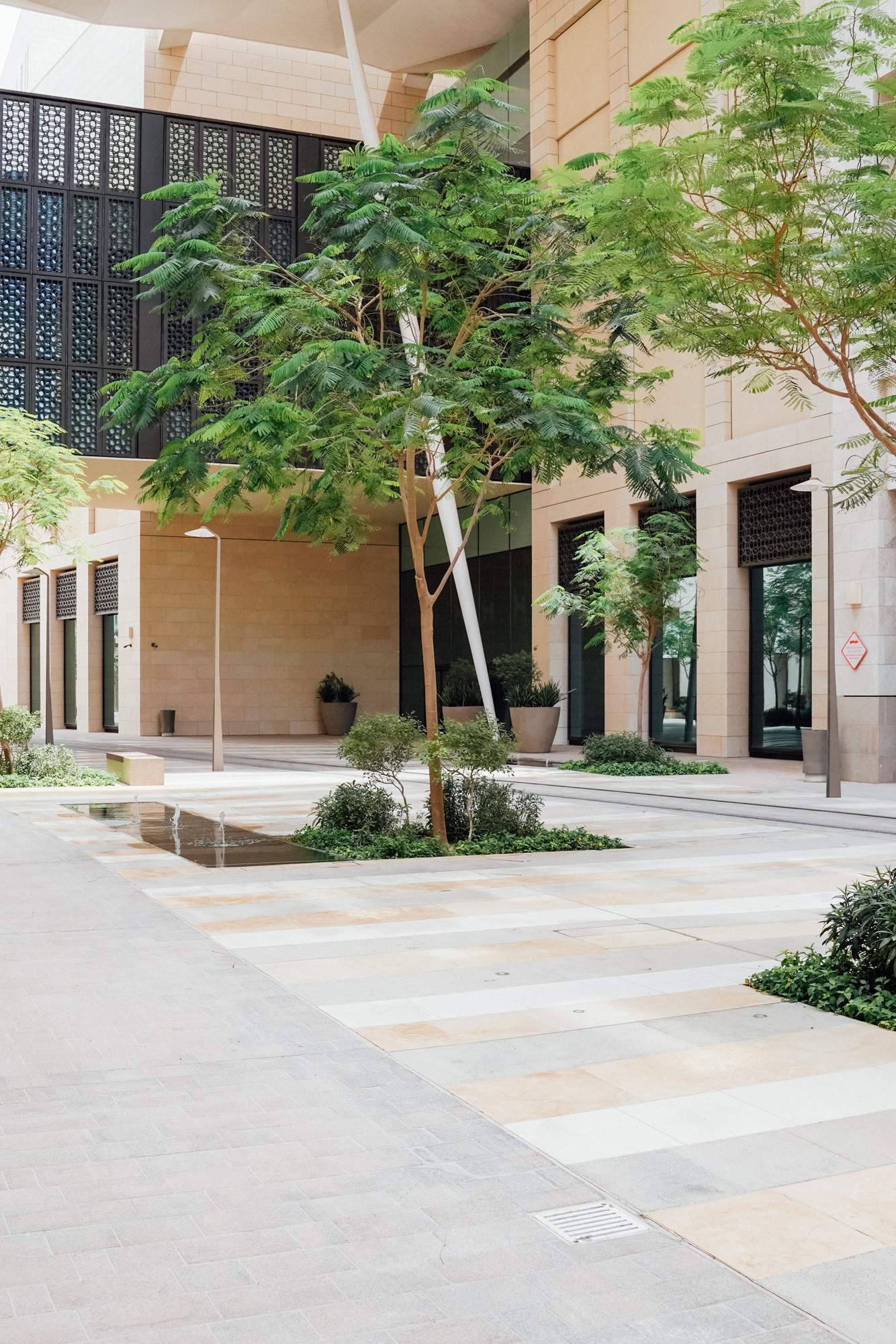

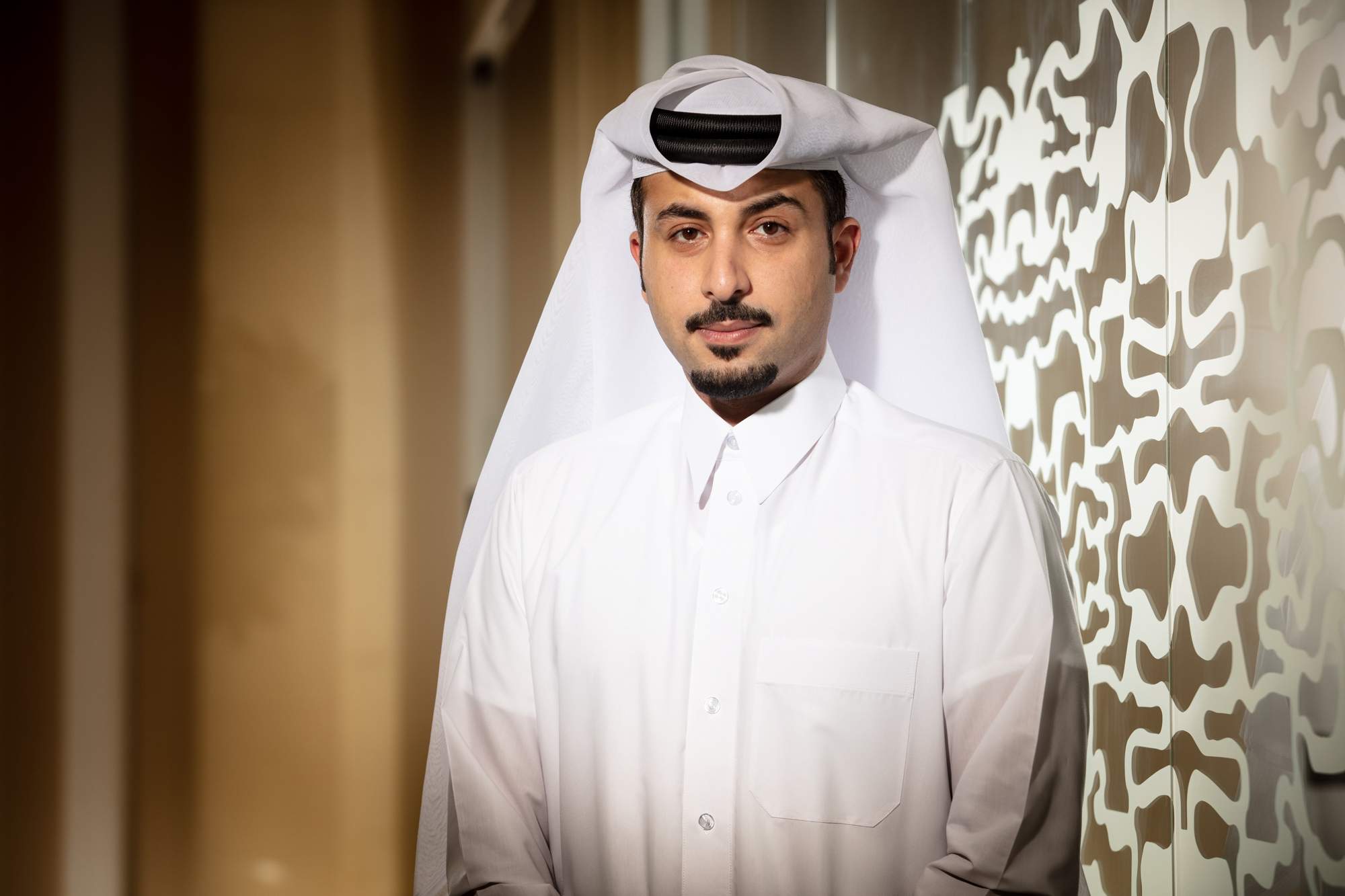
Q&A
Faisal Al Malki
Director, project management, design and delivery
What makes a sustainable city district?
Msheireb Downtown Doha is the first sustainable regeneration project of a downtown area in the world. All our buildings are leed Gold and Platinum certified and characterised by their water and energy efficiency, creating an eco-friendly sustainable project. Sustainability is central to Msheireb Downtown Doha in both the conservation of natural resources and the quality of its design. This reiterates our commitment to the environment and preserving natural resources.
Tell us about achieving your LEED certification?
The entire development is designed to consume fewer resources, generate less waste, lower costs and achieve a reduced carbon footprint – making mdd one of the world’s largest leed-certified sustainable communities. leed-certified buildings reduce stress on the environment and are more energy and resource efficient. They generate less waste and lower the use of energy, water and other resources. Points can be earned for storage and collection of recyclables, renewable energy use and indoor water use reduction. This is a major aspect of making our city sustainable.
How does the tram and its depot feature in this?
The tram loops around the development in a 2.5km track. This sustainable, battery-operated tram is the backbone of our public transport system. The Msheireb Tram has been an excellent added-value service to our city, offering an efficient means of transportation within our premises. Since the beginning of 2020, the mdd Tram has transported more than 100,000 passengers within the city, taking visitors around the central hubs from Msheireb Museums station to Al Kahraba Street, Sikkat Al Wadi and back to the Heritage Quarter.
See part one of this series here


